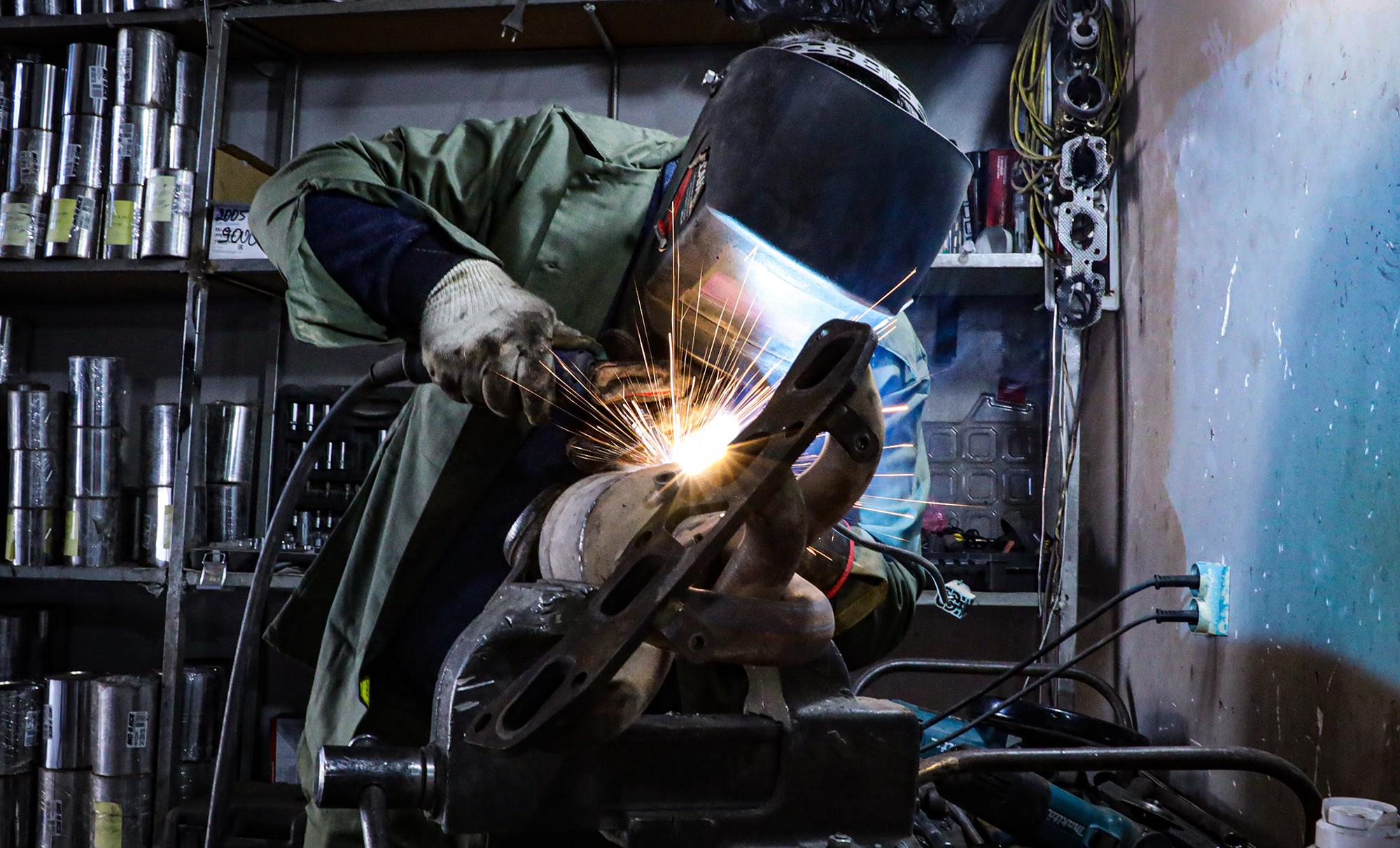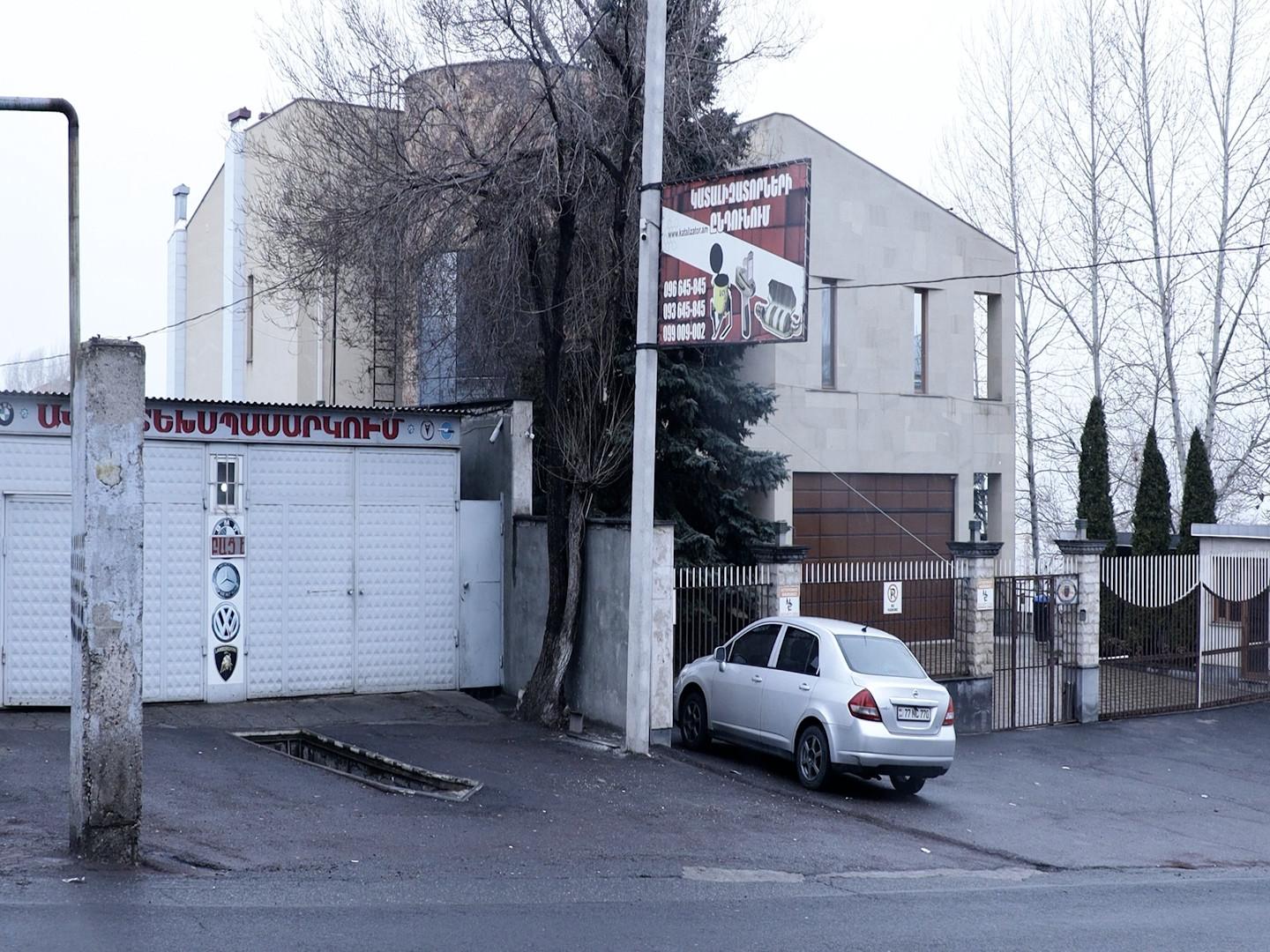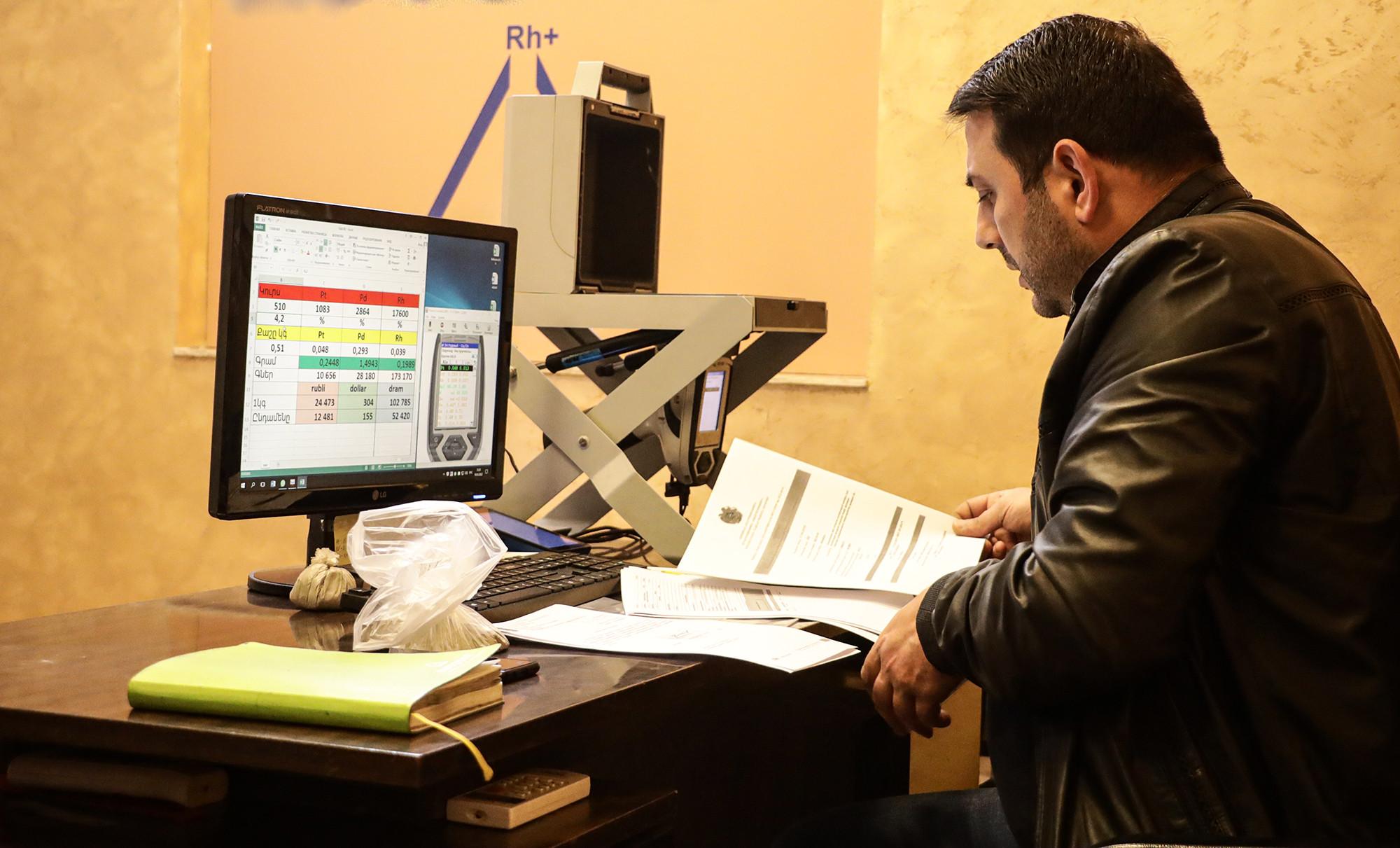
Auto Catalytic Converters in Armenia: Big Business Leads to Growing Thefts
Vahagn Rash (Rushanyan) was surprised and angered to see that the catalytic converter of his Lexus had been stolen in broad daylight on January 24, 2022, when his car was parked on a downtown Yerevan street.
Rushanyan, a composer and singer, in a Facebook post, wrote that it’s akin to living in a lawless country.
Other drivers who fell victim to the same theft joined the discussion.
Yerevan resident David Pedanyan also had his catalytic converter stolen even though the car’s alarm system was on. He realized what had happened only when he drove the car the next day and heard strange engine sounds.
Robbers covet catalytic converters because they contain precious metals, mainly platinum, palladium and rhodium. A gram of platinum today costs $32, palladium - $67, rhodium - $510.
A catalytic converter is an exhaust emission control device that converts toxic gases and pollutants in exhaust gas from an internal combustion engine into less-toxic pollutants.
Pollution from automobile emissions is a growing problem in Armenia, especially in the clogged streets of Yerevan.
Transportation accounts for 66.5% of air emissions in Armenia. According to the latest report of the National Greenhouse Gas Cadastre in 2017, road transportation emissions have increased since 2000 ․ During 2000-2017, road emissions increased by more than 150% due to the increase in traffic. The only exception was in 2009, due to the economic downturn.
Record number of thefts in 2021
2021 witnessed a record number of catalytic converters stolen in Armenia. Police told Hetq that 75 thefts were reported last year, sharply higher than the seven in 2020 and the five in 2019. No thefts were reported in previous years.
Who exports catalytic waste?
There are numerous businesses in Armenia that export the metals derived from catalytic converters. Data provided by Armenia’s State Revenue Committee lists the private businesses owned by Ashot Tigranyan and Alexander Khachatryan, and Gevmag LLC as the top three.
The data, however, is old. Hetq research shows that Gevmag no longer exports such scrap.
Record exports in 2021
2021 was also a record year for catalytic converter scrap. 61.7 tons of catalytic converter scrap containing various precious metals were exported to Germany, USA, Lithuania, Russia and Spain from Armenia last year.
Ashot Tigranyan didn’t want to tell Hetq who he exports to in Europe.
“We give it as waste to individuals who then sell it. I have no idea where it winds up. We have contracts with these people. They pass it on to factories or machine building companies,” Tigranyan told Hetq.
The converters are also ground down and exported as a powder.
Arthur Sargsyan, founding director of Avocad, a catalyst exporting company in Armenia, explained the process to Hetq. He said the price of the metals is checked daily on the London Stock Exchange.
Hetq asked the State Revenue Committee (SRC) whether such “powder” is listed as an export item on its books. Naira Nikoghosyan, who works at the SRC’s Customs Statistics and Information Department, responded that no such export code exists.
RobArs LLC, located in Yerevan’s Nor Nork neighborhood, is a leading exporter of catalytic converters and buys old units.
Employee Andranik Cholagyan told Hetq the company sells the ground up converters to a Toyota plant in Europe.
Company founding director Armen Arsenyan believe the government shouldn’t ban the export of catalytic converters but impose a ban on driving without one.
Automobile inspections in Armenia currently do not require such units.
Last year, the Armenian Ministry of Economy published a draft bill to impose a temporary export ban on ceramic waste from used car muffler catalysts.
Arsenyan says such a ban will not help reduce air pollution in Armenia. He argues that given the poor quality of gasoline in Armenia, many converters are no longer repairable after long usage and must be replaced immediately.
Artur Sargsyan moved his business from Russia to Armenia in 2021. And soon after opened a catalytic converter repair and replacement shop in Yerevan.
"By closing or banning, we will not receive any benefit. People working in this field earn money and can provide for their families," says Sargsyan.
He claims that the catalyst of the car loses its effectiveness over time, running on gasoline after 100,000 km, and on natural gas after 50,000 km. The out-of-order catalyst affects the performance of the car. The business buys the non-working converters and exports them to Russia.
Sargsyan says that if not for businesses like his, drivers would merely dump their old converters causing more pollution. His company sells the ground scrap to a factory in Russia.
Car owners in Armenia are in a bind since, according to Sargsyan, they can’t find new replacements for their old catalytic converters. Ordering from overseas costs from $1000-$2000. Buying a second-hand converter is just a short-term solution.
Hetq asked the State Revenue Committee how many new catalytic converters had been imported to Armenia in the past ten years. No such data exists.
Proposed changes to the law
Last year, the Armenian Ministry of Environment proposed that all cars imported to Armenia after 2020 can only pass inspection if they have a working catalytic converter.
The impetus was Armenia’s obligation, under the Paris Climate Accords, to reduce greenhouse gas emissions by 40% by 2030.
The ministry’s bill is now “on hold” and subject to modification.
According to Arthur Ghavalyan, Deputy Head of the Strategic Policy Department of the Ministry of Environment, there are flaws in the bill that need addressing.
For one, auto inspections stations in Armenia lack the equipment to check the effectiveness of catalytic converters.
When asked what drivers should do if they must buy new converters that cost more than the vehicle, Ghavlanyan responded, “The health and life of residents are more valuable.”
He says that 90% of the cars in Armenia lack catalytic converters.
First photo caption: Rushanyan posted photo of stolen converter
 Videos
Videos Photos
Photos






Write a comment